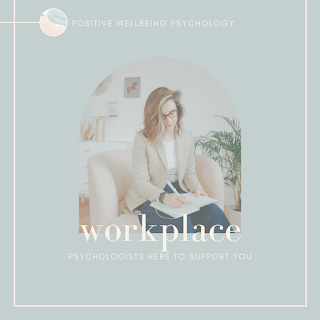How to Deal with Low Mood and Anxiety?
Feeling anxious is one way our bodies keep us safe from danger. When the brain perceives a threat, our bodies respond physiologically. But sometimes we can perceive a threat that is a bit of a false alarm or simply we become too worried and it is disproportionate to the actual event itself. Often when individuals experience a disproportionate emotional response and it is persistent over a longer period of time causing disruption to daily life, it can turn to be an anxiety disorder.
What is Anxiety?
Anxiety is feeling intense worried and distressed. Usually, during highly tense situations we tend to notice anxiety symptoms, as this is one of the normal reactions that our body show to keep us safe from danger. Often anxiety can result in avoidant behaviors when our brain is perceiving a threat of an uncomfortable situation and this can lead to social isolation. Over time, individuals that experience prolonged anxiety and avoidance, they start to feel anxious even in smaller groups including their friend circle, and then this extends to most situations. It is really important to understand the warning signs of anxiety and how to break the cycle at an early stage. It is important to understand and to learn how to deal with low moods and anxiety.
What are the signs and symptoms of anxiety?
Different people may react differently to varied anxiety-related disorders. Here are some common symptoms:
- Feeling nervous
- Panicking more often
- Feeling worried most of the time
- Checking the plans excessively
- Feel like vomiting in a highly tense situation
Noticing unhelpful thoughts similar to:
- Overthinking and ruminating on unhelpful thoughts
- “Nothing will be okay”
- “Everything will happen incorrectly”
- “I will be fired or found out for not knowing anything”
- “I will fail”
- “No one will talk to me”
- “I will embarrass myself”
- “I can't focus on anything other than my worries”
- “My worries are so real; I can’t help them”
- “Nothing will calm me down”
Persistent unhelpful thoughts may result in physiological body reactions including:
- Sleeplessness
- Over sweating
- Tommy aches/ churning stomach
- State of excessive thirst
- Feel like run away
- Pounding heart
- Trembling and twitches
- Shallow breathing
- Tension in the neck and shoulders
- Pin and needles, etc.
What are the types of anxiety?
- Generalized anxiety disorder
- Social anxiety disorder
- Specific phobias
- Panic disorders
- Agoraphobia
- Separation related anxiety disorder
Other than above, post-traumatic stress disorder and obsessive-compulsive disorder can also have severe anxiety components.
What is a panic disorder?
A panic disorder is an unexpected feeling of being overwhelming, distress or experiencing severe fear. Even in a routine and calm situation, an individual may experience reoccurring panic attacks. Individuals exhibiting symptoms of panic disorder worry about experiencing their next panic attack and therefore often find themselves avoiding certain places or people. Common warning signs of a panic attack may include chest pain, nausea, heart palpitations, excessive sweating, numbness, trembling body, dizziness.
What are the treatment options for anxiety?
There is a range of evidence-based treatment approaches for managing anxiety. The treatment of an anxiety disorder usually starts with the individual identifying the symptoms, onset, triggers, and coping strategies that have been adopted over the duration of experiencing anxiety symptoms. These factors are explored in a therapy session with an experienced psychologist in the treatment of anxiety. The psychologist will be able to assess the type of anxiety disorder most likely to be exhibited and devise a tailored plan to improve your mood and anxiety. A psychologist will likely explore unhelpful thinking patterns that are maintaining the symptoms of anxiety and panic as well adopt a range of mindfulness-based strategies.
How Positive Wellbeing Psychology can help?
You may benefit from talking to a psychologist to better understand lifestyle factors that could be maintaining the anxiety symptoms, as well as to explore a range of evidence-based strategies to help reduce anxiety symptoms. By finding the best-suited psychologist for your individual needs and therapy goals, you will be able to improve your mood, self-esteem, and interpersonal relationships. Individuals that are identifying with some of the warning signs noted above and exhibit high levels of anxiety due to prolonged stress or burnout would find great benefit from speaking with one of our warm and compassionate psychologists at Positive Wellbeing Psychology.
Make an online inquiry today(click here).



Comments
Post a Comment